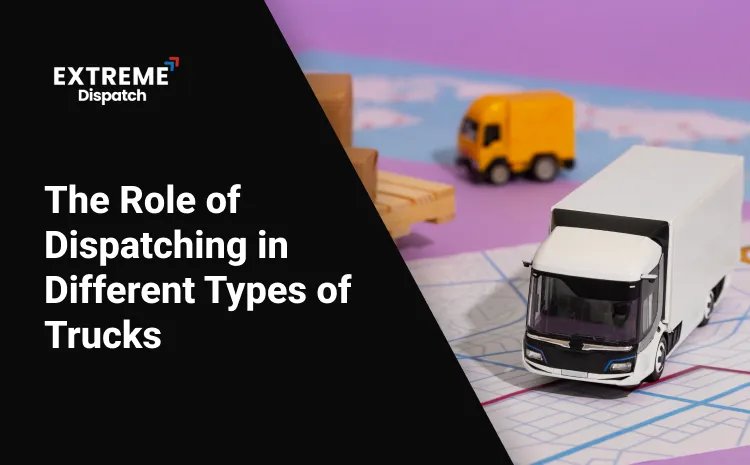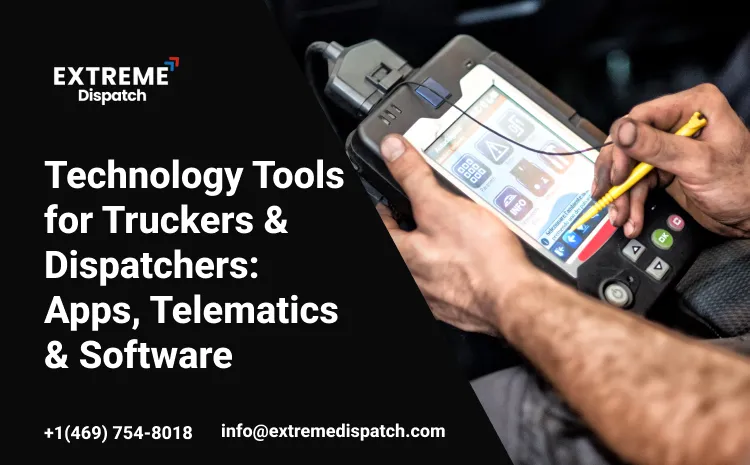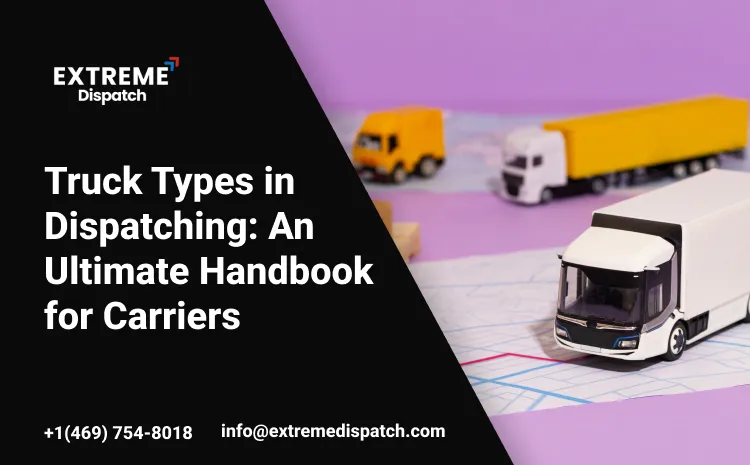Dispatching is the cornerstone of the trucking industry. Every load that moves across the nation requires open communication between dispatchers, shippers, brokers, and carriers. Extreme Dispatch understands that no two trucking operations are alike. Each type of truck, dry van, flatbed, reefer, hotshot, or power-only, has its own set of specifications, regulations, and efficiency issues. Making sure those trucks are loaded, profitable, and positioned for long-term success is dispatching’s responsibility.
We’ll look more closely at how dispatching supports various truck types in this guide, as well as which services are necessary for each and how efficiency and compliance are crucial to keeping things running smoothly.
Why Dispatching Matters for Every Truck Type
Before diving into the specific truck types, it’s important to understand why dispatching is so critical. Dispatching is much more than finding loads, it’s about planning routes, managing compliance paperwork, maintaining strong communication, and making sure carriers can focus on driving instead of paperwork or negotiations.
Different industries are carried by different kinds of trucks. Consumer goods will be transported in a dry van, produce that is sensitive to temperature will be transported in a reefer, and large building supplies will be transported in a flatbed. Different planning is required for each of these. For example, reefer loads need strict scheduling to maintain freshness, while oversize flatbed loads must adhere to state-by-state permit requirements. Dispatchers act as a link between these demands and the carrier’s capacity to meet them.
Carriers who use a professional dispatching service like ours receive more than just assistance with load-finding; they also get a partner who is aware of the unique needs of their truck type and helps them operate as efficiently and legally as possible.
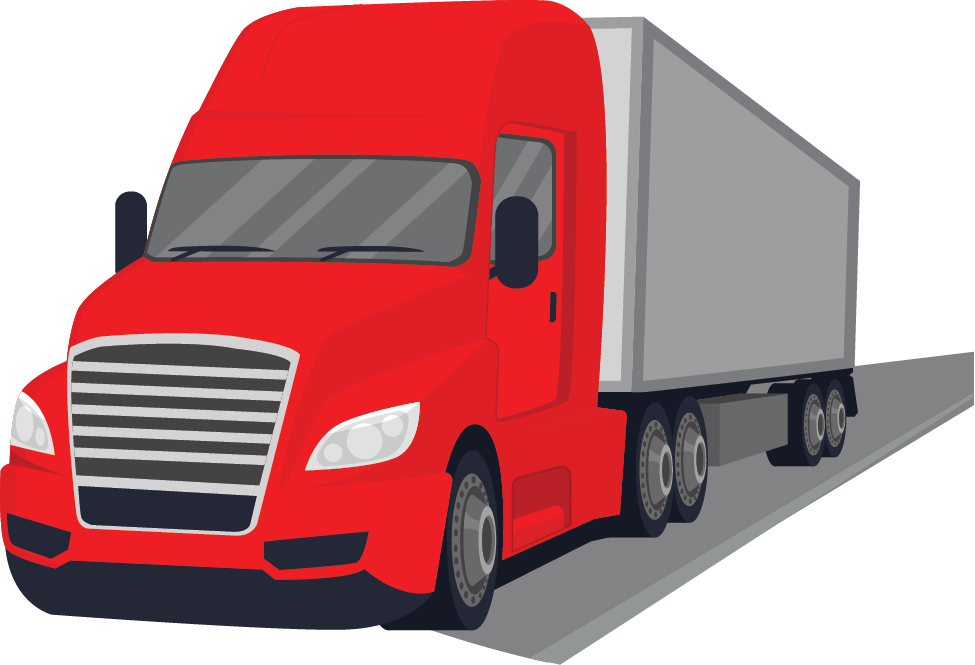
Keep Your Truck Moving – Get Consistent Loads Today
Dry Van Dispatching: The Most Versatile
Dry vans are perhaps the most popular truck type in the business. They carry anything from packaged goods to clothes and electronics and are extremely versatile because of it. That versatility, however, also breeds fierce competition for loads.
Dispatching Role
In order for dry van carriers to regularly fill their trailers with lucrative loads, dispatch is required. Dispatchers are concerned with negotiating more profitable rates and getting trucks on the road because dry van rates vary. In dry van hauling, backhauls are especially important, and dispatchers are in charge of packing empty miles with cargo to increase profitability.
Compliance and Efficiency Needs:
Unlike some truck models, dry vans do not require special permits or equipment; however, DOT compliance, ELD regulations, and Hours-of-Service (HOS) are still crucial. Dispatchers help carriers ensure smooth state-to-state operations by keeping an eye on hours, filing paperwork on time, and avoiding penalties.
Flatbed Dispatching: Handling Oversized and Specialty Freight
Heavy machinery, over-dimensional freight, and construction materials must be transported by flatbed trucks. Unlike dry vans, flatbed loads typically require permits for heavy or wide cargo, tarping, or strapping.
Dispatching Role:
The dispatching role for flatbed freight involves much more than just securing a load. Dispatchers must verify that carriers are within weight limits, follow route restrictions, and obtain any necessary state permits. To confirm loading and unloading protocols, they also get in touch with shippers and receivers. Brokers require clear communication, which dispatchers provide, because flatbed loads are frequently oversized or high-value loads.
Compliance and Efficiency Requirements
Flatbed operations present special compliance issues. Overweight permits, wide-load signs, and escort trucks might be necessary based on the cargo and routes. Dispatchers assist carriers to get ahead of these regulations to minimize the potential for expensive delays. Efficiency is also important, dispatchers route to avoid high tolls, fuel consumption, and downtime but still meet the unique demands of flatbed hauling.
Reefer Dispatching: Accuracy with Temperature-Sensitive Cargo
Reefer trucks are used for temperature-controlled cargo like dairy, produce, frozen products, and pharmaceuticals. This kind of hauling is more critical than nearly any other. A delivered window missed can ruin entire loads, costing carriers and shippers thousands of dollars.
Dispatching Role:
For reefer carriers, dispatch is timing and coordination. Dispatchers monitor delivery schedules closely, are in touch with brokers constantly, and equip carriers with the information necessary to prevent costly errors. They also try to optimize backhauls, which can be tricky in reefer operations.
Compliance and Efficiency Needs
Reefer cargo tends to have rigid Food Safety Modernization Act (FSMA) demands. Trailers are required to record temperatures, equipment is kept clean, and handling is standardized strictly. Dispatchers ensure this documentation is accurate and submitted in a timely manner. There is also efficiency involved: reefer trucks consume more fuel to operate refrigeration units, so dispatchers carefully plan routes to save money while still adhering to deadline requirements.
Hotshot Dispatching: Flexibility and Speed
Hotshot trucking employs smaller trailers and trucks to transport time-critical freight. The market has expanded rapidly due to its flexibility and reduced capital requirements, but hotshot carriers have unique challenges in obtaining steady loads.
Dispatching Role
For hotshot carriers, dispatchers play a crucial role in keeping the trucks full. Due to the urgency of the hotshot hauls, dispatchers need to be fast in securing freight and negotiating good rates. They also coordinate routes to allow carriers to deliver in tight time frames.
Compliance and Efficiency Needs
Hotshot trucking has a combination of compliance regulations based on weight, equipment, and interstate hauling. Some carriers are subject to full DOT regulations, but some are not, although in either case, dispatchers make it more understandable what is needed. Efficiency is also an issue: since hotshot trucks are smaller, each load must be well-planned to be profitable. Dispatchers minimize deadhead miles and allow carriers to increase revenue per trip.

Keep Your Truck Moving – Get Consistent Loads Today
Power-Only Dispatching: Carrier- Trailer Matching
Power only trucking provides a way for carriers to transport loads with only their tractor, attached to a shipper’s or broker’s trailer. This reduces carrier overhead because they don’t have to own and maintain trailers, but it takes intense coordination to find the proper matches.
Dispatching Role:
Power-only freight dispatching is all about connections. Dispatchers find compatible trailer moves and ensure carriers have the proper equipment and authority on the load. Because trailer availability and requirements differ, dispatchers make sure all the details are clearly communicated prior to the journey.
Compliance and Efficiency Requirements
Power-only operations require strict attention to compliance because trailers can have certain requirements. Dispatchers ensure carriers are complying with weight limits, insurance policies, and equipment compatibility. Efficiency is derived from reducing downtime between drop-off and pickup of trailers, which dispatchers manage by scheduling back-to-back opportunities.
The Role of Compliance in All Truck Types
Compliance is one of the biggest carrier responsibilities, regardless of the type of truck. Drivers can be easily slowed down by paperwork and regulations, such as DOT safety regulations, IFTA reports, and ELD logs. By overseeing back-office compliance tasks, dispatchers bear a large portion of this burden.
Dispatchers can avoid costly fines, delays, or even termination by maintaining accurate and up-to-date records. In order to ensure that all of the truck types we serve are prepared for inspection and audit, Extreme Dispatch also provides compliance assistance, such as IFTA reporting and DOT support.
Efficiency as the Key to Profitability
Dispatching is ultimately a matter of optimizing efficiency. When trucks idle fewer hours, reduce deadhead miles, and have regular loads, carriers experience tighter profits. Efficiency also applies to communication, when dispatchers keep brokers aware and carriers informed, all parties stand to gain.
Every type of truck poses its own efficiency challenge:
- Dry vans require smooth freight flow.
- Flatbeds require carefully planned routes for over-sizes.
- Reefers must conserve fuel while making tight delivery commitments.
- Hotshots need rapid load matching.
- Power-only carriers require consistent access to trailer opportunities.
Dispatchers are the strategic partner who builds efficiency into each trip.
Final Thoughts
The function of dispatching for various types of trucks is both universal and specialized. Universal in that dispatchers always offer load coordination, compliance assistance, and communication, and specialized in that every type of truck has special requirements that need a customized approach.
At Extreme Dispatch, we partner directly with carriers of all sizes and types of equipment. Our aim is to take the headache out of looking for loads, processing paperwork, and maintaining compliance so that carriers can do what they do best, driving and delivering. Regardless of whether you have a dry van, reefer, flatbed, hotshot, or power-only operation, the proper dispatching assistance can bring about the difference between fighting challenges and thriving in this day and age.
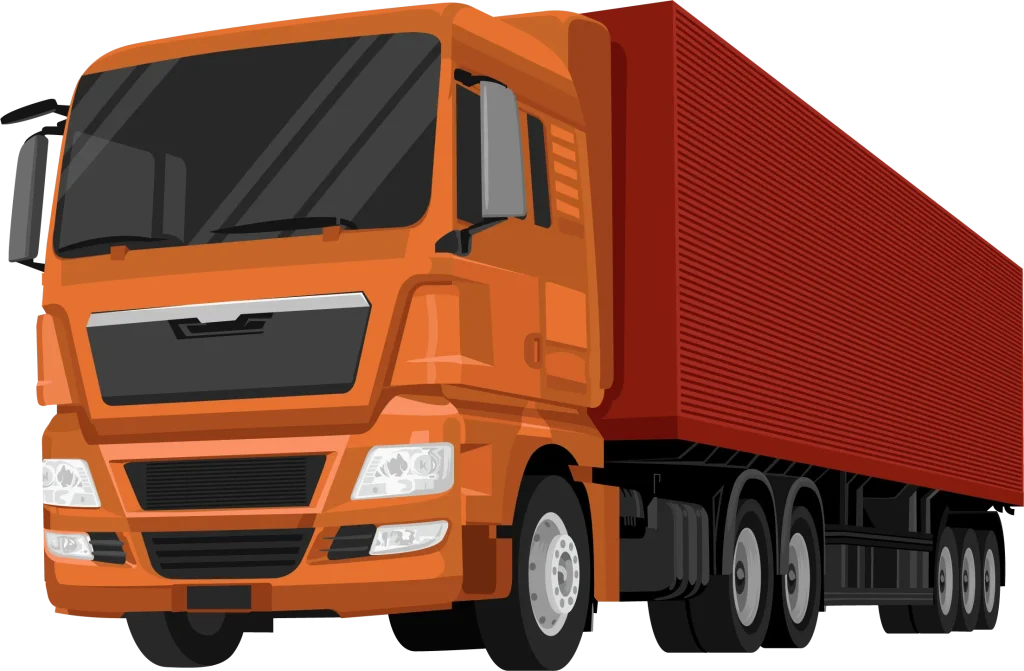
Subscribe to Learn more about Extreme Dispatch
By clicking “Subscribe” you agree to our Privacy Policy and consent to using your contact data for newsletter purposes

